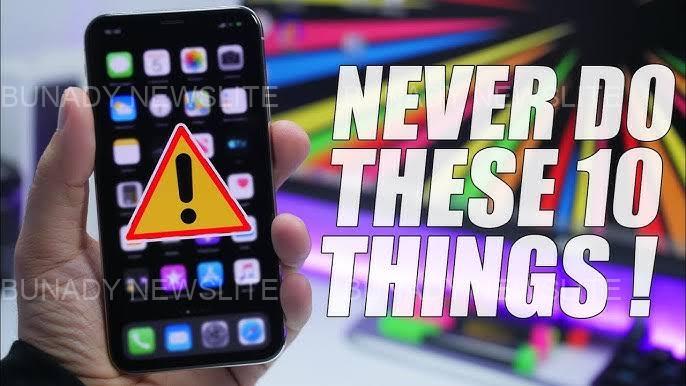10 Things You Should Never Store In Your Smartphone
Smartphones are powerful tools for managing daily life, but storing certain types of information and data on them can be risky....READ ORIGINAL & FULL CONTENT FROM SOURCE |
While smartphones are convenient, it’s important to be mindful of what you store to ensure privacy and security. Here are ten things you should never store on your smartphone:
1. Passwords: Storing passwords directly on your phone is a security risk. If your phone is lost or hacked, sensitive accounts could be compromised. Use a reputable password manager instead to keep your passwords safe.
2. Personal Identification Information: Sensitive documents like your social security number, passport, or driver’s license should not be stored on your phone. These pieces of information can be easily accessed if your phone is hacked.
3. Bank Account Details: While banking apps are secure, storing account numbers, PINs, or credit card information in notes or unsecured apps can expose you to fraud if your phone is compromised.
4. Sensitive Photos or Videos: Explicit photos, videos, or private moments should not be stored on your phone, especially without encryption. They can be used against you if your device falls into the wrong hands.
5. Unencrypted Work Files: Storing unencrypted work-related files on your smartphone can put your job and your company’s data at risk. If the files contain confidential information, use encrypted cloud services or secure apps for storage.
6. Health Information: Storing medical records, prescriptions, or sensitive health details on your phone may expose you to privacy violations if the phone is hacked or lost.
7. Old Emails with Personal Information: Emails with sensitive personal information like financial details or confidential messages should not stay on your phone for long. Regularly delete or archive them to a more secure location.
8. Financial Documents: Tax returns, investment reports, or other sensitive financial documents should not be stored directly on your smartphone. Instead, use secure cloud storage or a password-protected app.
9. Unnecessary Backup Files: Excessive backups of apps, photos, or other files can take up unnecessary space on your phone and increase the risk of storing potentially sensitive or outdated information.
10. Unsecured Cloud Storage Files: Avoid storing important or sensitive files in unsecured cloud services. While cloud storage is convenient, it’s important to ensure your data is encrypted and accessible only to you.
By being mindful of what you store on your smartphone, you reduce the risk of identity theft, privacy breaches, and data loss. Always prioritize security measures like encryption, secure cloud services, and strong passwords to protect your sensitive information.

